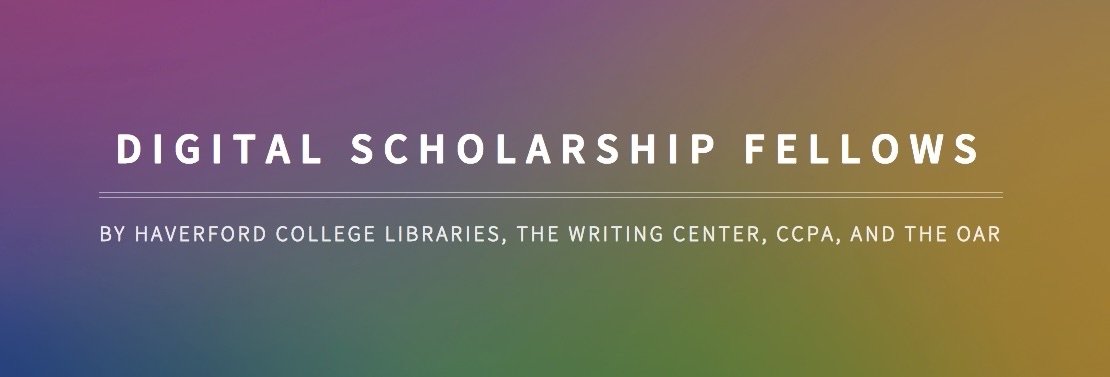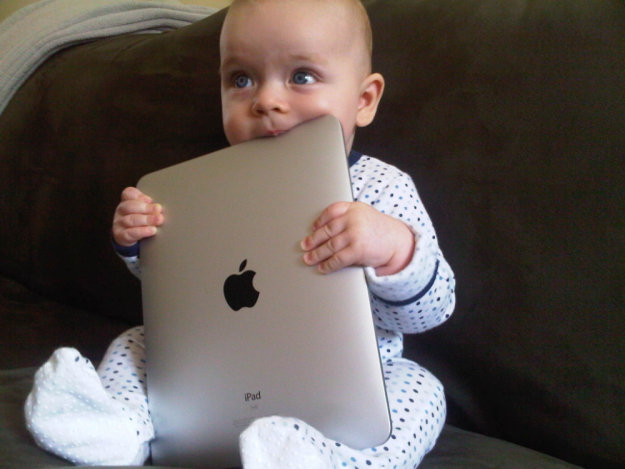Unit 1
Anatomy of Information

Introduction/Icebreakers
- Tell us your name and what your favorite food is, or anything else about yourself.
- Tell us what made you interested in this fellowship program and what you hope to get out it.
- Talk about the digital information preliminary survey/your thoughts.
Going from Paper to Digital
Going from Paper to Digital
- How is information transformed?
- How does the meaning of the same content change when it's presented and organized in different mediums?
- When we move towards technology-- what's gained, what's lost?
- Is one better or worse?
Goals of the Program
- This program is composed of a series of classes where you will develop digital and technological skills you can apply in your scholarship
- Gain the skills and communication to collaboratively plan, develop and build a digital scholarship project over the course of the year using information from the Quakers and Mental Health site.
- Develop skills to critically evaluate digital sources, their objective, and authority.
Introduction to Quakers and Mental Health
Units of the Program
Unit 1 -
Unit 2 -
Unit 3 -
Unit 4 -
Unit 5 -
Unit 6 -
Unit 7 -
Unit 8 -
Anatomy of Information
Anatomy of Technology
Project Management
Managing Data & Information
Design & Media
Copyright, Privacy, & Terms of Service
Final Class - Final Presentations
Audience 2.0
Expectations of Fellows
- Enthusiasm!
- Commitment to the Program
- Willingness to learn, be patient with your peers, and work collaboratively with others to create a great final project!
- Attendance and Respectfulness in all sessions. What time works best for everyone? (Thurs. 4-8, Fri. 11-1, 5-7).
Resources available to Fellows:
[Resources in a [Resource]]
Any further questions?
How do we critically analyze technology?
For example how do you 'read' a web page?
Publishing: Then and Now
- Many years ago, publishing something that would be seen by a wide audience was extremely difficult--you needed to be approved by editors, publishers, etc
- Nowadays, anyone can publish anything! And with relative ease!
Publishing: Then and Now
- How do our present circumstances of being able to publish easily on the web change things?
- How does this change the reliability of sources?
- What other effects are caused by the current climate of web publishing?
Haverford's Website Through the Ages
What happens when technology changes?
(such as Haverford's Website)
How does technology change the way

we perceive the world?
So..
What is Digital
Scholarship?
What is Digital Scholarship?
Digital Scholarship
- Making an argument in a digital form, with the use of digital technologies.
- It is also: "the use of digital evidence, methods of inquiry, research, publication and preservation to achieve scholarly and research goals. Digital scholarship can encompass both scholarly communication using digital media and research on digital media".
source: https://en.wikipedia.org/wiki/Digital_scholarship
Examples of Digital Scholarship
Can you think of some other examples of Digital Scholarship?
Digital Scholarship by HC Students
What are some tools for Digital Scholarship?
-
Online communities- iPL2, or the Internet Public Library, “is a public service organization and a learning/teaching environment. To date, thousands of students and volunteer library and information science professionals have been involved in answering reference questions"
- Online forums- Stack Overflow is an example of an online forum for web programmers.
- Advanced videoconferencing- GoogleChat, service through a gmail account that allows multi-person meetings, screen sharing, picture, video and file sharing as well as chat functions all while on a video call.

(iPL2 is still accessible but currently closed).
What is Digital Literacy?
-
Digital Literacy
includes the ability to find and use information, (otherwise known as information literacy) but goes beyond this to encompass communication, collaboration and teamwork (Digital Scholarship), social awareness in the digital environment, understanding of e-safety and creation of new information.
source: http://www.open.ac.uk/libraryservices/subsites/dilframework/
What are some ways to increase your digital literacy?
- Knowing more about the web
- Collaborating with other students
- Using digital mediums to form hypotheses and do research
- Knowing basic search commands to tailor your searches to get the answers you want (ex. booleans, proximity operators, etc.)
- Doing this program!
But what about Authority?
- Is this source objective? Does this source have authority? Why or Why not?
- How would you find the author of this online source?
How do we evaluate digital resources and sources?
Session 2: Let's set up your Reclaim Hosting accounts!
Don't forget to email us your receipts!
1. Go to https://reclaimhosting.com/
2. Click on sign-up on the student/individuals side
3. Register your domain (remember you can use this to build your own personal site as well, the subscription is for a year)
4. Fill out the rest of your information
5. Remember to Save and email your receipts to me mschulte@haverford.edu
How to set-up your Reclaim Hosting Account (a CMS)
What happens when you
Change things on Reclaim Hosting?
1. Log-in to Reclaim Hosting
2. Click on C-Panel (top toolbar)
3. Click on File Manager (left-most sidebar)
4. In the file directory click on Public_HTML
5. Either create a file (file--> new, label extension as .html) or open a file in code editor and edit it
6. See your changes by going to your website domain name /the name of the file you created or are editing
~The End~
function dsFellows():
if (class == first) {
if (first_class == over) {
return "Congratulations Everyone!";
}
} images for scholarly and educational use only